3 Ways To Improve Work Performance + 10 Simple Tips
No need to mince words here, we all could use help when it comes to work productivity.
Whether we’re biting off more than we can chew or we’re simply master procrastinators, it’s definitely time for a productivity booster.
So we’ve made our very own performance booster shot containing 3 ways to improve your work performance. With a daily dose of this, you’ll learn how to be productive in your work environment. Use these skills to improve job performance, both personal and professional.
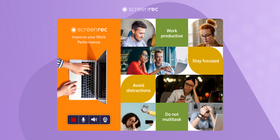
Why Is Work Performance So Important?
Founder of Atari Inc. and Chuck E Cheese Pizza, Nolan Bushnell said it best:
“The critical ingredient is getting off your butt and doing something. It’s as simple as that.”
You can't get any more correct than that! Yet, we make getting a move on seem so hard.
Adding more to the point, Email Analytics posted facts from a study by Qualtrics. The research shows that workers continually overestimate their own productivity by 11%. So not only are we slacking at work, but we think we’re doing a great job!
McKinsey also did a study, and it proved that when employees are connected to their work, the company sees a 20 to 25% increase in productivity. Now that’s a goal we can reach and we hope these employee performance improvement suggestions will help.
Top 3 Ways to Improve Work Performance
#1 Make Work Productivity A Priority
Great annual performance is all about everyday work productivity. If you aren’t productive, tasks will be left incomplete, deadlines will be missed, and bosses will be angry.
Here are a few productivity tips for work that’ll garner you a stunning review at your next performance review.
Tip 1: Stay focused and avoid distractions.

Time wasters at work come in many forms. From talkative coworkers to a wandering mind. But one of the biggest (and most ironic) distractions is work emails. According to the Washington Post, Adobe discovered that we spend an average of 4.1 hours every day checking our work-related emails. That’s literally half of a normal workday. Thanks to emailing, we are only half as productive as we could be.
One of the easiest ways to fix that is to use ScreenRec. Don't waste time writing a 2,000-word email when you can simply record your computer screen and voice to get your point across.
Sending the video is insanely easy, too. Once you stop recording, the sharing link is automatically copied to your clipboard. In a matter of minutes, you have recorded and shared all of the information that would have taken 15 to 20 minutes to effectively communicate in writing. What’s better, you can refer people to the videos you’ve already recorded and save your time explaining the same things over and over again. You can get ScreenRec for free forever here + 2 GB of private cloud storage.
Finally, know when enough is enough. Taking regular breaks between tasks has also been found to improve your focus and productivity. Even a short break can have an impact.
Tip 2: Do NOT multitask.
The plain and simple truth is that multitasking doesn’t work. Our brains are not equipped to focus on two things at once. It doesn't matter how simple those tasks are. Instead, we can only give half of our attention to one thing half of the time.
Meaning that in the amount of time it takes to “multitask” on two assignments, we could have completed the first. This article published by the Cleveland Clinic goes into detail about how inefficient multitasking is.
One approach you can use to beat procrastination and avoid multitasking is to use the Pomodoro Technique. It splits your work into “focus chunks”, allowing you to stay on task.
Tip 3: Do the most important thing first.
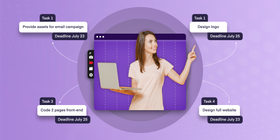
One of the areas for improvement at work includes prioritization. If we want to learn how to improve work productivity, we must first master the art of prioritizing. Do the important tasks first!
Brian Tracey wrote an entire book on this very concept. He titled it “Eat That Frog.” The concept is that if one of the items on your to-do list is to eat a live frog, you should do that first.
This way you can continue with your day knowing that the worst of it is over. In other words, do the biggest and hardest task first, then simply coast through the rest of your day.
Tip 4: Use task management tools.
We are not machines, We cannot keep EVERY detail in our heads. Task management tools are designed to help you stay on task, make your deadlines, and prioritize. They also help you to start working efficiently with your team members.
Apps like Asana and Slack help with keeping it all together. If used correctly you’ll never have to worry about disorganization again.
BONUS! Plan your week ahead.
With a task or time management tool, this should be easy. Knowing what you are going to do every day of the upcoming week can help you stay focused and even keep you driven as you knock out one task after another.
#2 Improve Yourself
Great performance starts with a great you. Besides professional development, you also need to take care of yourself before you can take care of anything else. And you also have to understand yourself – your strengths and weaknesses.
Tip 5: Get enough rest, eat well, and exercise.
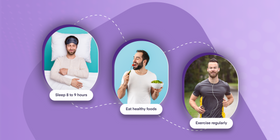
Since we were children, we’ve been taught the importance of maintaining a healthy body and lifestyle. Especially for the purpose of performing well in school. Now, as adults, those teachings are more crucial than ever.
We allow ourselves to slack on our diets, excuse our way through not exercising, and stay up too late when we need to wake up early the next morning. By the way, abusing your bedtime is a thing, and it’s called “revenge bedtime procrastination”– the act of not going to bed on time because you are overwhelmed with tasks and you have no time for yourself.
The 2-minute rule by David Allen for improving productivity also advises that we scale habits we want to introduce in our lives to a 2-minute version. Once we begin, it becomes easier to continue.
If we can get these things together, our performance will follow suit.
Tip 6: Be punctual.
No, it’s not just you. Being late in the morning can really mess up your entire day. Not only are you giving yourself less time to complete your work, but it can also affect your relationship with coworkers and higher-ups. This article on CareerTrend explains how important punctuality is and how it affects the success of your performance. It says:
“Consistently arriving to work on time demonstrates commitment and consideration for the people you work with, and the company that employs you.”
Punctuality is especially difficult when you work from home. If you don’t have set work hours and you mostly work on your own, you can spend your morning procrastinating and find yourself working late at night.
Tip 7: Learn to say “no”.
Everyone is given their own specific tasks for a reason. Maybe it’s our skills or work ethic that determines what we are assigned. In either case, everyone has enough of their own work to do.
So if a coworker is asking you to help complete or take on one of their assignments, feel free to say “no” if it in any way hinders your own work progress.
When a manager asks you to do something that you know you won’t be able to do with your current workload, give them a list of your tasks and ask them what to prioritize. Sometimes, this will help them realize that your time is better spent elsewhere and they will assign the task to someone else who is less busy.
Tip 8: Don’t leave things unfinished.
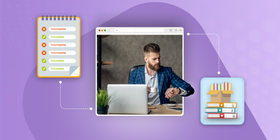
This is a surefire way to fall behind. Avoid having incomplete assignments. Use a management tool to map out your week and the tasks you need to complete in that time. This will allow you to allot enough time to get it all done without cramming or simply not finishing.
#3 Sharpen Your Skills
We all have areas of improvement at work that can be benefited by the sharpening of our skill sets. If we can strengthen our abilities, we may get better at accomplishing our previously difficult tasks.
One easy way to improve your skills is to seek constructive feedback from people with more experience than you.
Tip 9: Read something new every day.
You’d be surprised to learn how a simple reading habit can affect our mental sharpness. In a post on TheHealthy.com, they explain that reading forces your neurons to fire. It’s almost like giving your brain a jump start.
What’s more is that even after you put the book down, your brain can stay revved up for up to five days! You can read the entire article here.
Tip 10: Get a mentor.
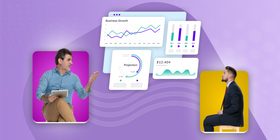
You’ve heard the saying:
“Two heads are better than one.”
This doesn’t only refer to two people working out a problem. It also can mean the growth of one individual thanks to another.
Everyone has their own experiences and therefore more or different knowledge. You can learn a lot from just about anyone. So why not partner up with someone who can add to your growth and you both can use these tips to learn how to improve productivity?
The 10 Essential Tips To Improve Your Performance At Work
Let’s recap, shall we?
Tips | How to Put Them to Use |
Stay focused and avoid distractions | Reduce emailing with ScreenRec. |
Don’t multitask | Complete one assignment at a time. |
Do the most important thing first | Eat that frog! |
Use task management tools | Sign up for a free app like Trello. |
Get enough rest, eat well, and exercise | Give yourself a bedtime and set goals for eating healthier and exercising. |
Don’t leave things unfinished | Rely on your task management tool to finish tasks in a timely manner. |
Be punctual | Get comfortable in a morning routine so that you are always on time. |
Learn to say “no” | Focus on your own tasks and learn to ask managers what to prioritize. |
Read something every day | Choose a book and read one chapter daily. |
Get a mentor | Choose someone you trust and rely on them to sharpen your skills. |
Bonus: Plan your week ahead of time | Again, use the management tool to map out your tasks for the week. |
Conclusion
If you add these three ways for improving employee performance to your daily routine, you are bound to have a better work experience. You may also find yourself less stressed, which may lead to an easier, happier life.
If it’s too much to change at once, simply implement one tip each day or even month. Start with using ScreenRec to minimize the number of hours you waste with emailing. Then slowly work your way into using a management tool and mapping out your week. It just may be easier than you think.

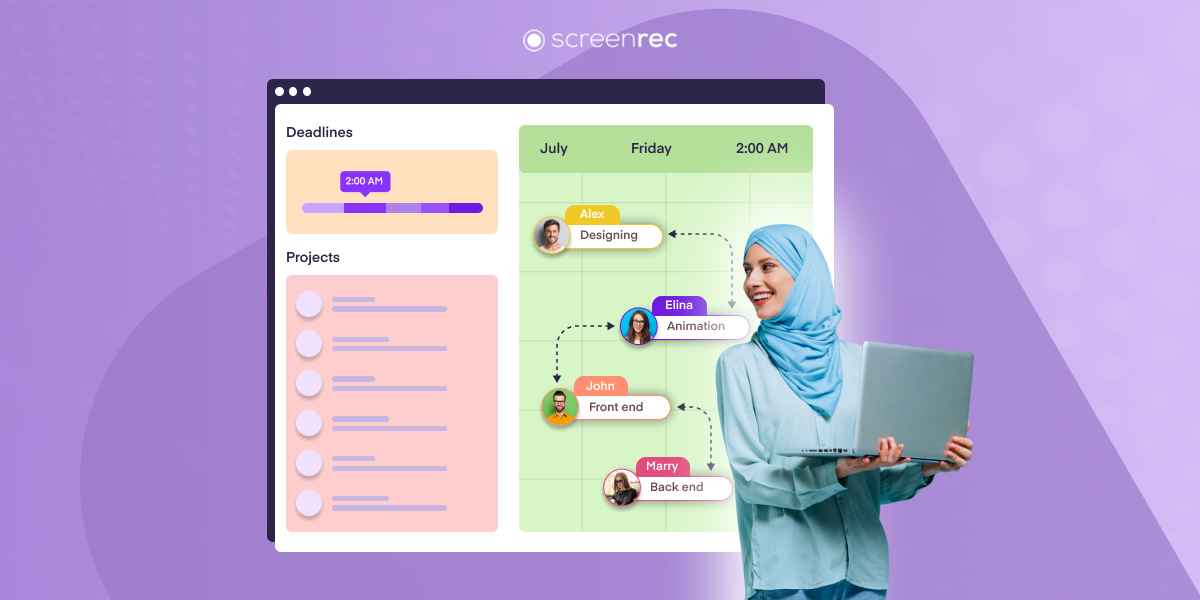
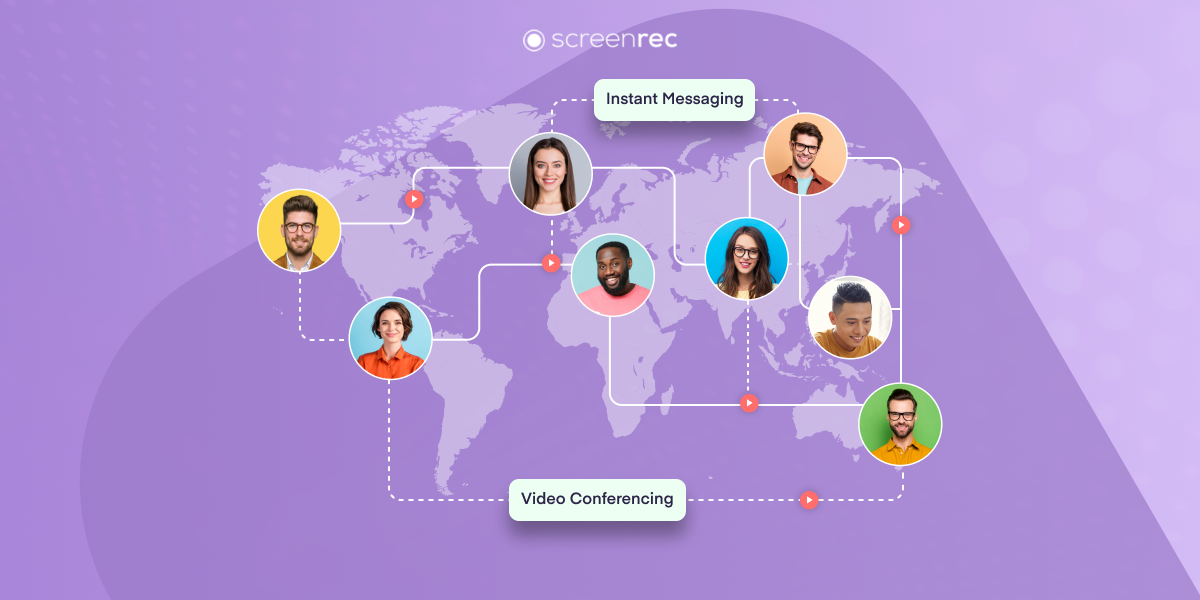

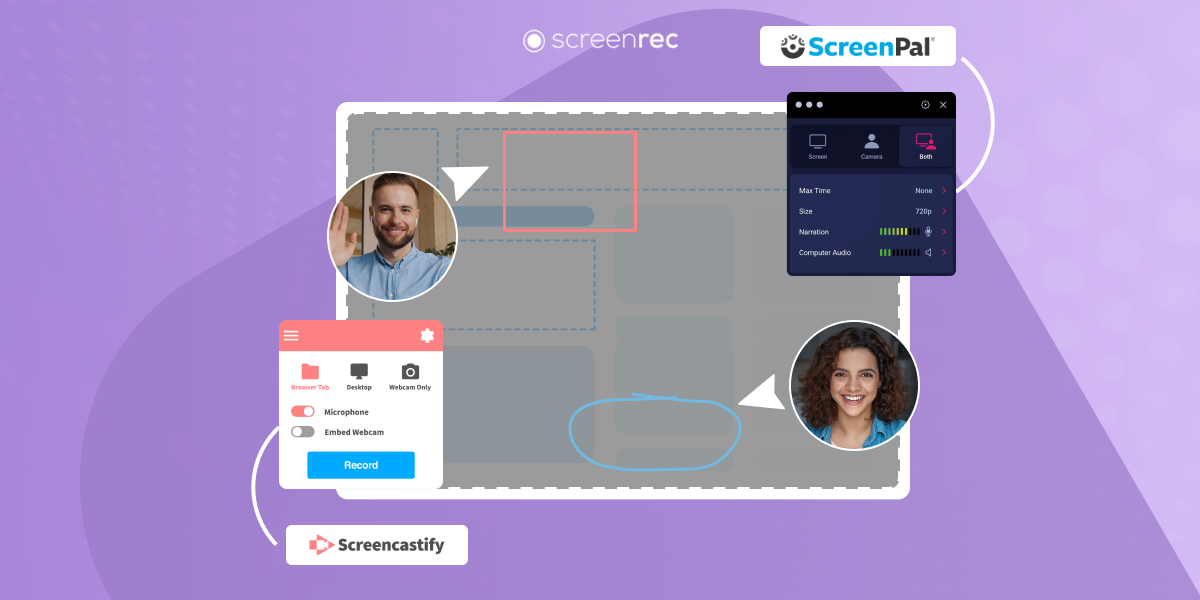
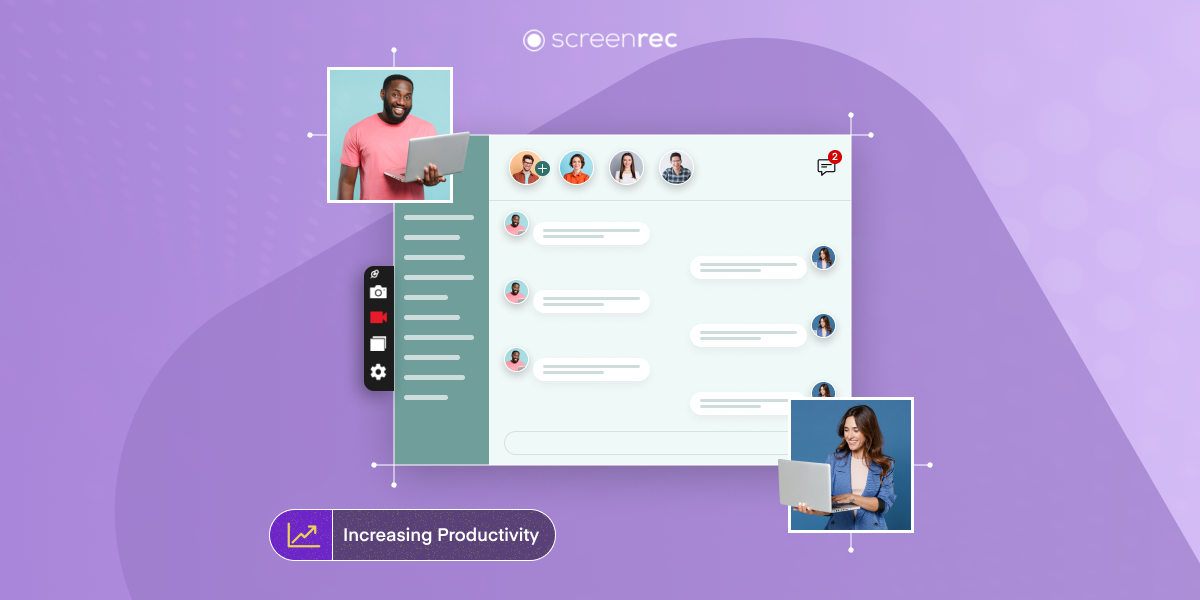
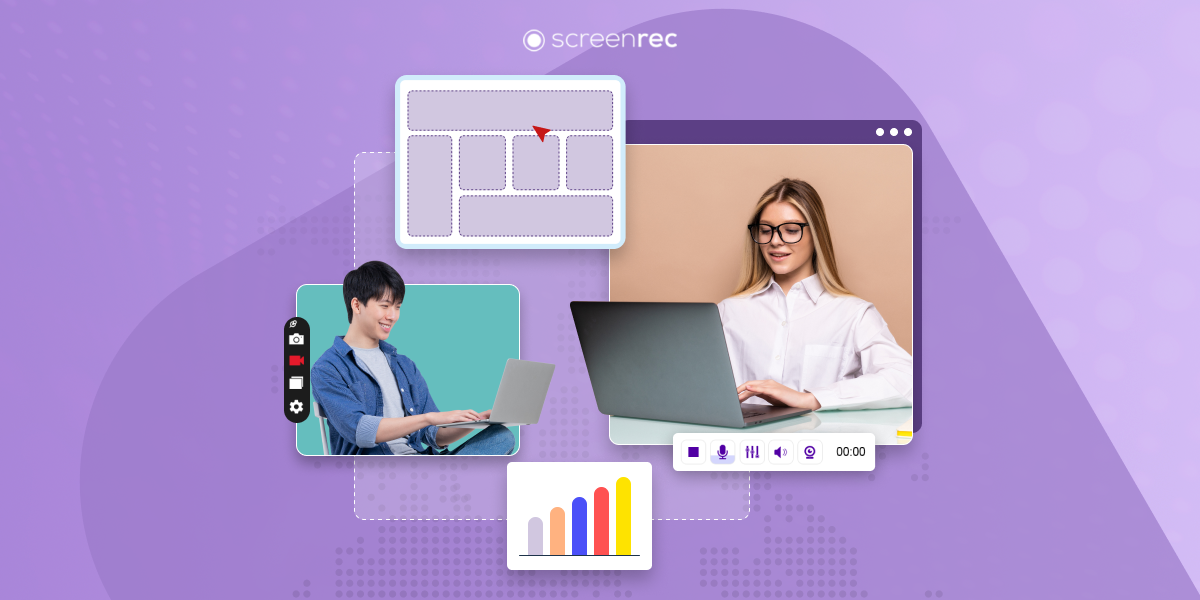
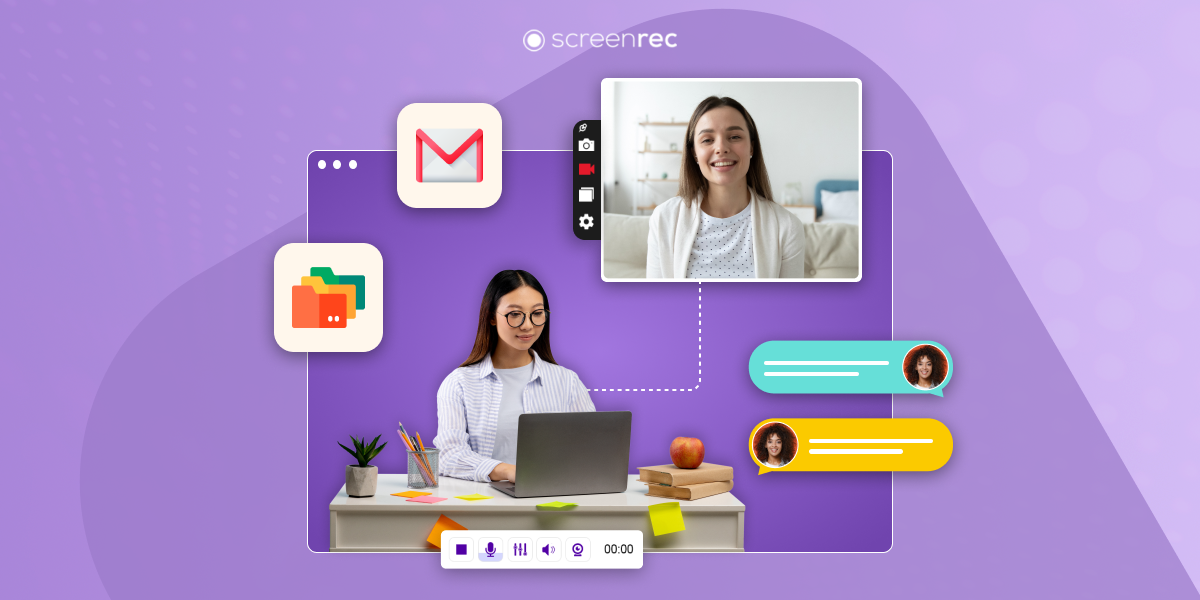


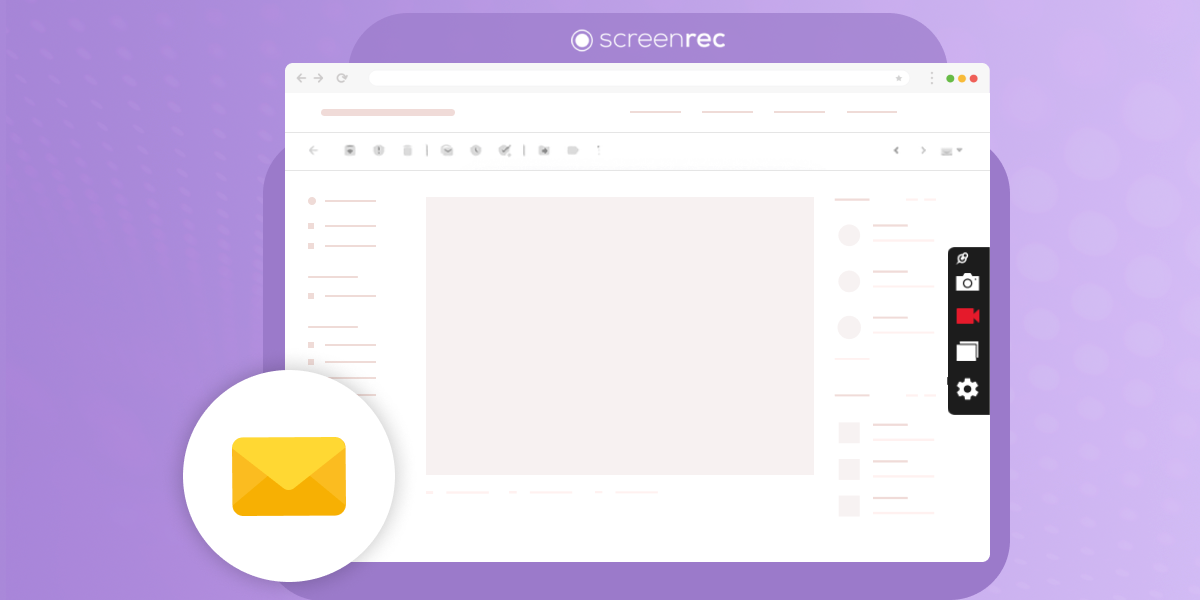
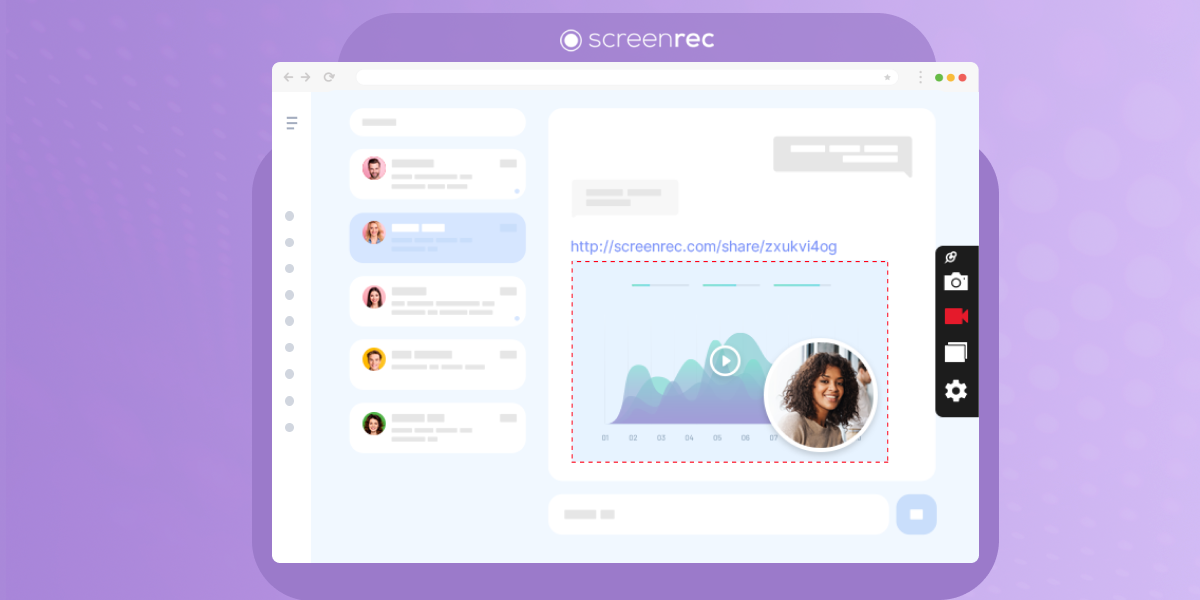
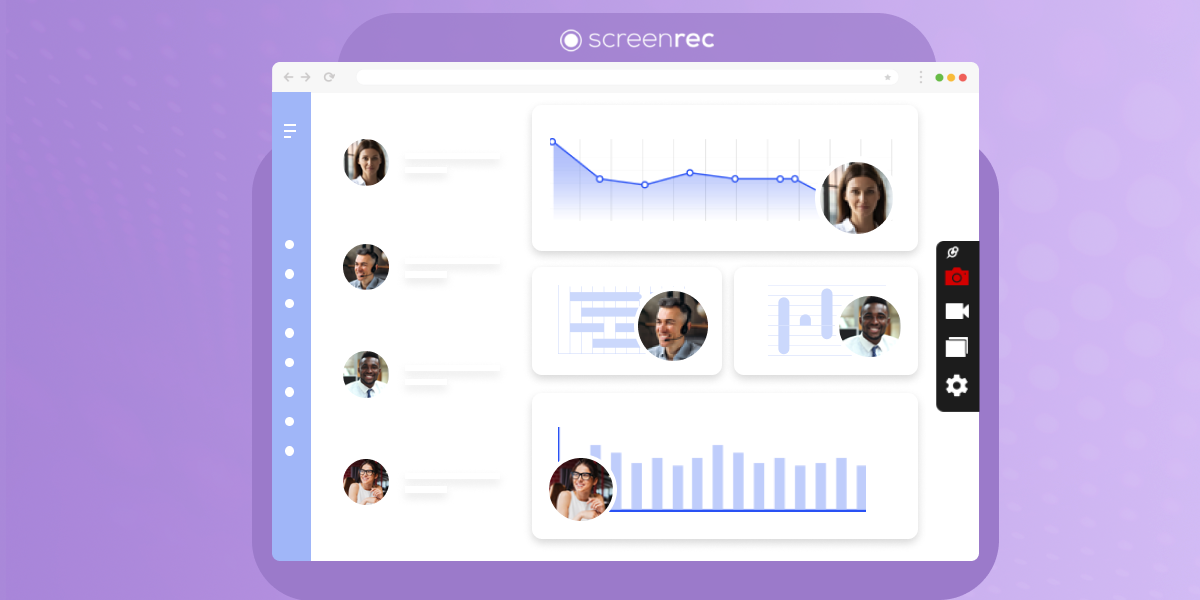
![[Guide] Effective Communication In The Workplace](https://screenrec.com/assets_dist/screenrec/media/communication-workplace/communication-in-the-workplace.jpg)
DON’T MISS OUT
Get updates on new articles, webinars and other opportunities: